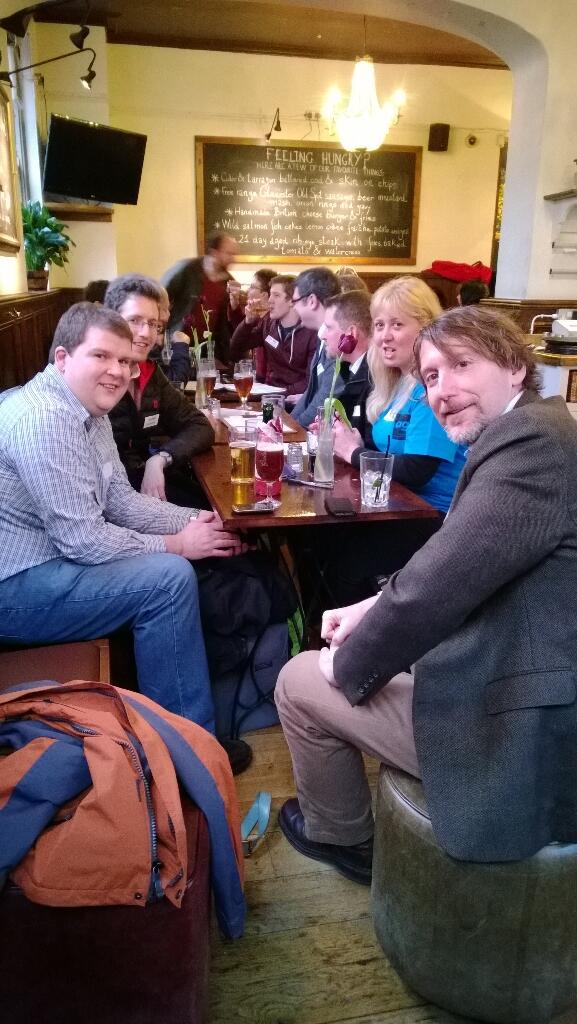OK obviously travel is not one of the Big 5 issues in GI today but it
is an interesting issue when planning events about GI. Location is the core of
what our industry does however finding the right location to hold a conference
is the core of a very severe headache for the AGI team.
The whole point of the Geo Big 5 events series is that it is a series
of national (UK) events that just happen to be spread around the nations and
regions of the UK rather than a series of local events like last year’s
showcase. The UK is incredibly compartmentalized for a small country (Americans
find the idea of people refusing to travel from London to York or similar
hilarious) and we want to get people together from different areas of GI both
in terms of location and expertise. This is why the Big 5 themes were chosen as
they are issues that affect people working in all different sub sectors of GI
all across the UK.
 |
| It's really not that big... |
We believe having these joined up conversations with a wide audience is
very important as the nature of the UK means that different areas have similar
but different challenges and opportunities. The policy environment in Wales is
different to that in Scotland for example driving different ideas and
innovations. However the market is still similar enough that organisations can
learn from each other and how different solutions are matching different
problems. We want to see people from Glasgow at a Bristol event and people from
Bristol at a Glasgow event.
There is no reason that for example that an Open Geospatial event held
in Belfast is less relevant to people in London than one held in London would
be. In fact it should represent an opportunity to get out and see different
approaches being taken and different examples of innovation (both Northern
Ireland and the Republic are very Open friendly environments). The barrier of
course is travel, or at least the perception of travel difficulty, especially
as soon as a plane is involved.
However the reality is that most major cities in the UK are pretty easy
to get to by plane or train and with a bit of forward planning it doesn’t have
to be horribly expensive. To stay with the example above travelling from London
to Belfast doesn’t really take any longer than travelling from London to somewhere
on the south coast (assuming you fly of course, driving might take a while!)
Anyway the point of this (yes there is one) is that we need to be a bit
more American in our attitude to distance (what it’s only 200 miles away?). We
live in a small country that has pretty decent transport (unless you live on
the wrong side of Dawlish in which case pretend I didn’t say that for a few
months) and we run the risk of missing out on great things because of a reluctance
to travel.
So get booking your tickets to Glasgow
(Future Cities) and Belfast
(Open Geospatial), we’ve got two great events with loads of exciting
content and even with travel costs £49+VAT for a ticket is still incredibly
cheap in the grand scheme of conferences!
If you work for an organisation with a travel ban then please ignore the above or sneak out whilst your boss is not looking.
If you work for an organisation with a travel ban then please ignore the above or sneak out whilst your boss is not looking.


